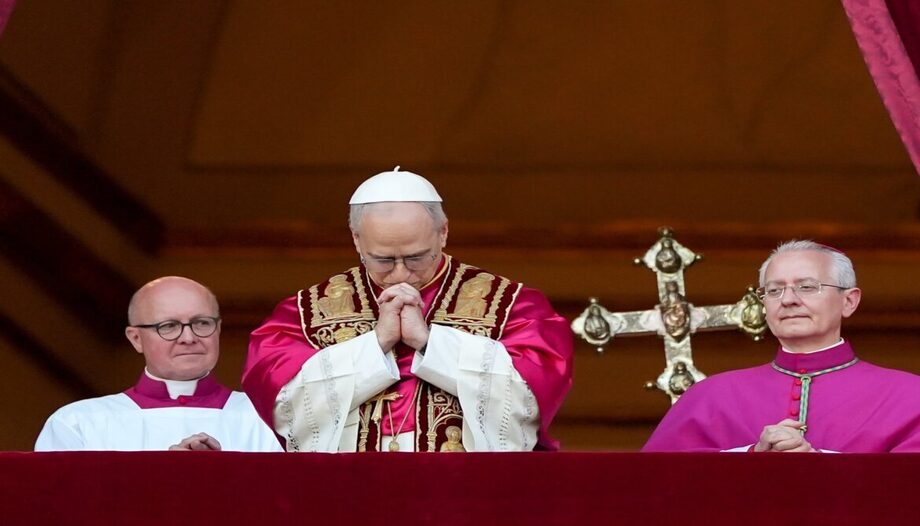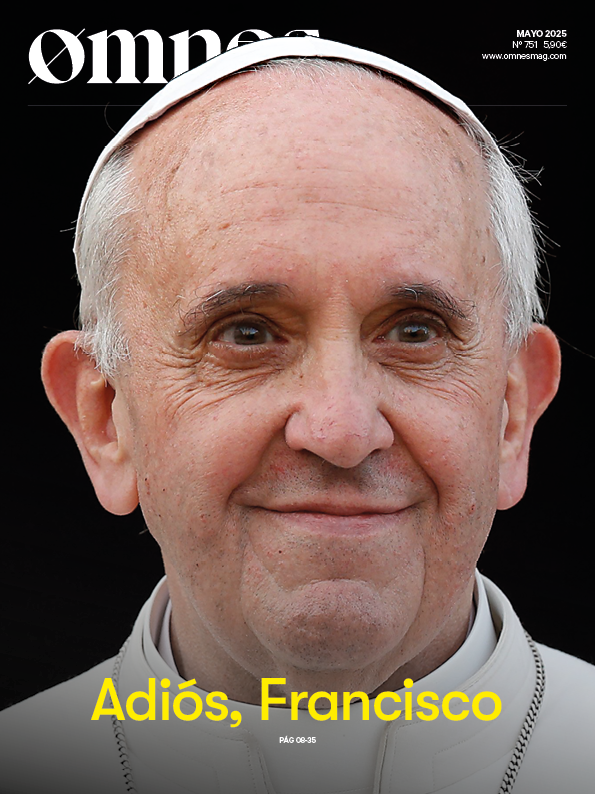Continuing to address the sexual abuse crisis in the clergy is a matter that any pope in the Catholic Church should confront. What's next? Cardinal Sean O'Malley, president of the Pontifical Commission for the Protection of Minors, was among the first prelates Pope Leo XIV received in audience on May 14. It is fair to say, therefore, that this crisis seems to be at the top of their list of priorities.
In the first week of Pope Leo XIV's pontificate, the leading expert on the abuse crisis, as well as several abuse survivors and victims, have come out in defense of the newly elected Roman Pontiff. They have done so after two organizations advocating for abuse victims raised concerns about Cardinal Robert Francis Prevost's record on the matter after he was electedPope.
"Very aware" of the issue of child abuse.
Jesuit Father Hans ZollnerPrevost, director of the Institute of Anthropology (IADC) at the Pontifical Gregorian University in Rome, is a leading expert on the abuse crisis. He first met the then Father Prevost when Prevost was serving as the former general, the chief authority of the Order of St. Augustine in Rome. At that time, the future pontiff participated in the inauguration of the Child Protection Center (now IADC), as well as a safeguarding summit in the Gregoriana.
"Along with several other superior generals, he represented the male major superiors. And that in itself was already a sign that he, at that time in 2012, was very aware of the issue of child sexual abuse," Father Zollner told OSV News in a recent interview. He added that Prevost "was willing to learn more, both in terms of protection and in terms of canonical procedures."
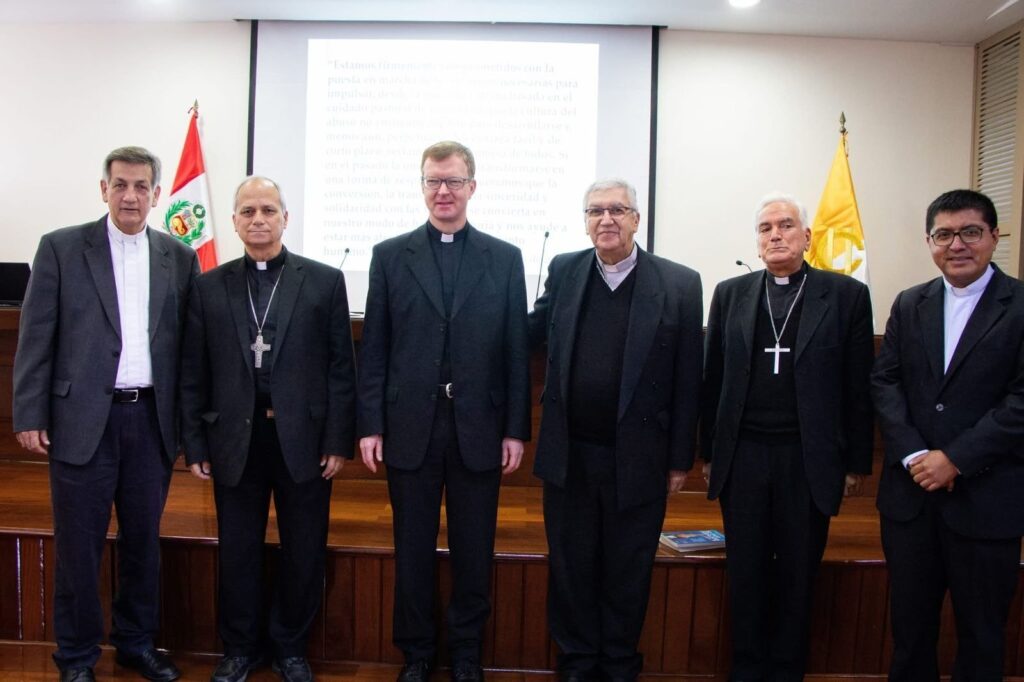
Eight years later, in early 2020, their paths crossed again, when Father Zollner was invited by the Episcopal Conference of Peru to give a workshop on protection. At the time, then Bishop Prevost was the vice president of the Conference.
Pastoral, governance, canon law experience
The Father Zollner told OSV News that he welcomed Pope Leo's election, and valued his experience as a missionary in Peru, as a bishop and as head of the powerful Dicastery for Bishops in the church's central government. These experiences "are vital for what we need now in terms of church leadership, when it comes to transmitting the faith in a challenging environment."
He also noted that, with his expertise in canon law, Pope Leo can bring a balanced approach to the issue of clergy sexual abuse. Because "focusing only on a canonical approach is not enough if you really want the church to move globally." "Especially when it comes to a change of mentality and attitude."
"He had silently supported us, he was always there."
While meeting with several journalists on May 12, during an audience with those who had been covering the papal transition, Pope Leo met with Peruvian journalist Paola Ugaz. She was smiling from ear to ear as the Pope shook her hand. He handed her a stole made of alpaca wool, which he placed briefly on her shoulders, and Peruvian chocolates. The two shared a few words.
"The gifts I gave him I had originally brought for my friend, Cardinal Prevost, who along the way became the Pope," he told OSV News later, with a smile.
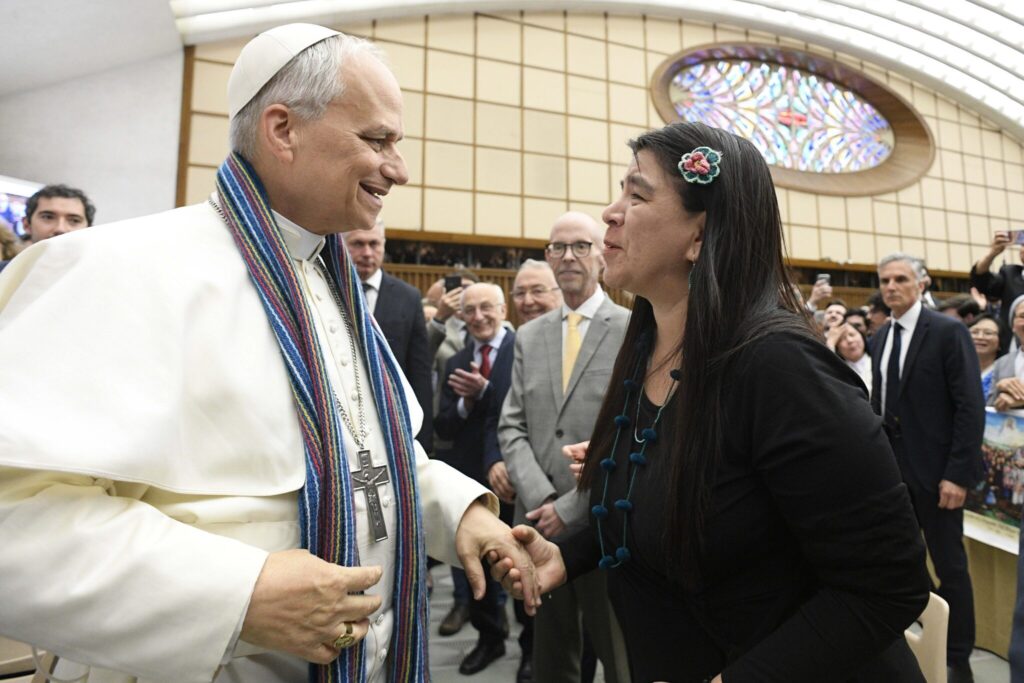
For Ugaz, this was not just a happy meeting with the new pontiff. Rather, it was a surprising reunion with someone who had been among the few who had supported her during a decades-long persecution. As she and survivors of abuse sought to expose wrongdoing within a controversial movement in her country.
Bishop Prevost "had supported us quietly, not in front of the cameras, since 2018," he said. "He never did it for recognition. He just helped. He was always there."
'A deeply symbolic message'
In 2015, Ugaz, along with survivor and fellow journalist Pedro Salinas, co-wrote a book titled 'Half Monks, Half Soldiers' ('Mitad Monjes, Mitad Soldados'). There they detailed the alleged psychological and sexual abuse, as well as corporal punishment and extreme exercises. Everything that the young members of Sodalitium Christianae Vitae, a society of apostolic life founded in Peru in 1971, were forced to endure by others in the community, including the leadership.
Since 2018, Ugaz and Salinas have faced a defamation campaign they attributed to Sodalitium, which included lawsuits and the publication of materials aimed at discrediting their work.
Pope Francis: dissolution of the Sodalitium
Given the movement's continued attempts to silence victims, as well as its questionable financial practices in Peru, Pope Francis launched an investigation into the Sodalitium in July 2023. And he sent Maltese Archbishop Charles Scicluna, assistant secretary of the Dicastery for the Doctrine of the Faith, and Spanish Monsignor Jordi Bertomeu, also of that department.
The investigation resulted in the expulsion of several high-profile members of the movement, including Archbishop José Antonio Eguren of Piura, as well as its subsequent dissolution by Pope Francis in January 2025, just a few months before his death on April 21.
"Justice came thanks to the Church."
Recalling the moment when the Papa Leo was announced as St. Peter's 267th successor, Ugaz told OSV News that the news "hit me like a ton of bricks."
"It was beautiful," he added. "I don't know if he was looking for it, but for the survivors, it's a deeply symbolic message."
Ugaz said that during his time as head of the Chiclayo diocese, then Bishop Prevost was one of the few bishops in the country who stood by his and Salinas' side, as well as that of the Sodalitium victims, when the group used questionable and unethical methods to silence them.
While "in Peru, the abusers and the powerful usually get away with it," Ugaz said that in his particular case, justice came from outside, "not because the country suddenly realized that the Sodalitium had abused its members, stolen land from farmers and gone after journalists. Justice came because of the church, not because of the courts."
What we know about the allegations
Not long after the announcement of Pope Leo XIV's election on May 8, the Survivors Network of Those Abused by Priests (SNAP) issued a statement accusing the new pope of failing to act against abuse in two separate cases: one in Chicago, when he served as Augustinian provincial in 2000; the other in Chiclayo in 2022, when he was bishop of the diocese.
In Chicago, the group said, then-Father Prevost allowed Father James Ray, a priest restricted from ministry in 1991 after being accused of molesting minors, "to live at St. John Stone Augustinian Convent, 2000." "Despite its proximity to a Catholic elementary school."
On May 9, Crux reported that a Chicago Augustinian said, "as background, that earlier this year the archdiocese had asked the order for permission for Father James Ray to be interned in that house after he was removed from ministry, because his superior was a licensed counselor acting as supervisor of a security plan imposed on Ray, and therefore Ray would be under a more watchful eye."
Security plan
In her report, Elise Allen wrote: "The Augustinian said that the location of a school two blocks away was not considered a risk at the time, given that there was a security plan in place, and the criteria for not placing accused priests near schools was a product of the 2002 Dallas Charter, which had not yet been issued when the Ray decision was made."
"This decision, they said, was an agreement between the archdiocese and the superior of the convent, but one that Prevost had to formally sign, since it was an Augustinian community house." The Archdiocese of Chicago has yet to respond to the recent allegations stemming from the 2000 incident.
Made decisions
As bishop of Chiclayo, SNAP accused the newly elected Pope of failing to open an investigation and sending "inadequate information to Rome" in the case of abuse of three women. The group alleged that the priest was allowed to continue his ministry despite the accusations.
SNAP said it filed a complaint against then-Cardinal Prevost "under Pope Francis' 2023 decree 'Vos estis lux mundi' on March 25, 2025."
The Chiclayo diocese denied the allegations made by SNAP, saying that then Bishop Prevost met with the victims in April 2022, and subsequently dismissed the accused priest, suspended him from ministry and forwarded the results of the investigation to the Vatican.
Smear campaign
"All the media have tried to discredit the cardinal, claiming that he did nothing, that is a lie. That is a lie. He has listened, he has respected the procedures and this process continues its course," said the bishop of Chiclayo, Monsignor Edinson Farfan, in a press conference in a town where the now Pope Leon was bishop, reported EFE agency on May 10.
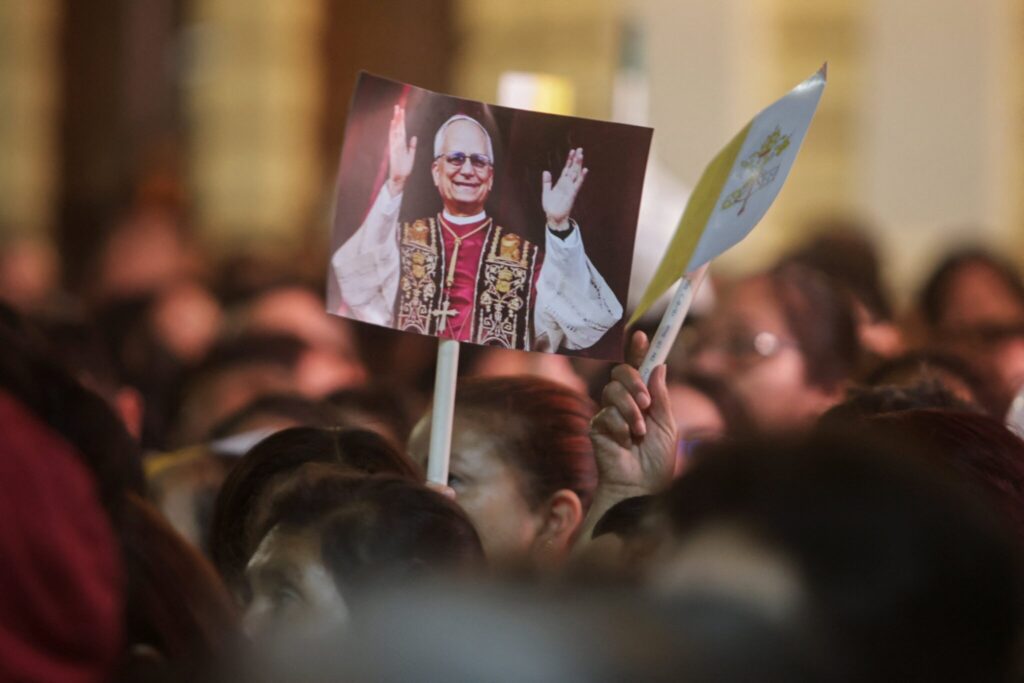
When asked about the allegations made by SNAP against Pope Leo, Ugaz said that while the victims' stories of abuse are undeniable, the accusations of inaction were part of a smear campaign orchestrated by members of Sodalitium, who wanted to discredit the former bishop after he supported the movement's victims.E
Accusations: "were part of the campaign"
Father Zollner also suggested that the "accusations against then Bishop Prevost were part of the campaign instigated by members of Sodalitium."
"I have not seen any compelling evidence or documentation that SNAP or (watchdog website) Bishop Accountability or whomever has presented in support of the allegations," Father Zollner told OSV News.
The allegations about the Chiclayo case were picked up on September 8, 2024 by the television news program Cuarto Poder, capturing attention in Peru and abroad.
Request to a program to rectify the situation
"What the program Cuarto Poder claimed, that Cardinal Robert Prevost covered up for the priest, Eleuterio Vasquez Gonzalez, and that he remained silent in the face of complaints, is not true," the diocesan statement said at the time.
"From the moment of receipt of the complaint, and maintaining the right to the presumption of innocence, the Church has proceeded in accordance with its guidelines, both in the preliminary investigation and in the application of the precautionary measures: removal from the parish and prohibition from the public exercise of priestly ministry."
No turning its back on alleged victims
The diocese also asked Cuarto Poder to "rectify" its report, adding, "It is not true that the Catholic Church turned its back on the alleged victims. On the contrary, they were left free to file complaints in the civil courts and were offered the necessary psychological help if they needed it."
Cuarto Poder's investigation focused on the accusations of three women, who alleged that they were touched inappropriately by Father Vásquez when they were children.
The alleged victims issued a statement on September 11, 2024, in which they contradict the diocesan statement. They claim that, in fact, after reporting the story to the then Bishop Prevost on April 5, 2022, until November 2023, when one of them made it public on social networks, "no investigation was carried out, nor were precautionary measures taken for the protection of the faithful, boys and girls...the case was archived," they stated.
In their Sept. 11 statement, the alleged victims posted several images of the accused priest, Father Vasquez, celebrating Mass in public spaces on important occasions such as Easter, despite the restrictions the diocese asserted in its Sept. 10 statement.
In process
However, in its Sept. 10 statement, the Chiclayo diocese said that "the case was sent to the Holy See and archived for lack of evidence. Then, after a public appeal by one of the plaintiffs, the case was reopened, investigated again and is currently underway at the Dicastery for the Doctrine of the Faith. It should be added that, although it was publicly stated that there would be more alleged victims, only two of the three who initially complained came to testify."
OSV News has requested confirmation of this, as well as of the Dicastery's response, from its prefect, Cardinal Victor Manuel Fernandez. At the time of going to press, there was no response.
Testimonials
Those who worked with then Bishop Prevost also contradict the allegations. "Roberto (now Papa Leo), when these accusations occurred, knew how to act immediately," Cesar Piscoya, former executive secretary of the pastoral vicariate under then-Bishop Prevost in the Chiclayo diocese, told OSV News May 12.
Piscoya explained that the then bishop addressed the canonical aspects of the complaint, adding, "When there had to be a complaint in a civil context, he also promoted it." Piscoya worked alongside the future Pope Leo XIV in Chiclayo from February 2015 to December 2022.
"Unfortunately, there are naysayers. Unfortunately, there are people with bad intentions," he said. "But when you identify who is writing and who is publishing this, we find out that they are precisely the ones who were accused."
The Peruvian bishops' conference barred a canon lawyer, Father Ricardo Coronado Arrascue, from representing the victims in August 2024. In December of that year, a decree issued by the Dicastery of the Clergy, and seen by OSV News, confirmed that the priest had been secularized (lost the clerical state), for sins against the sixth commandment, causing scandal and forcing "someone to perform or submit to sexual acts."
Same challenges, new pontificate
Father Zollner said that in light of Pope Francis' summit to address clerical sexual abuse in February 2019, in his view, the following is crucial. That Pope Leo XIV "promote awareness of the need to engage and continue to engage in safeguarding measures." Particularly with regard to the three pillars of addressing abuse: compliance, transparency and accountability.
One of the most pressing cases on the table for the new Pope to handle in canonical terms is the case of Slovenian priest-artist Father Marko Rupnik, who was expelled from the Jesuit order in June 2023.
"I hope that, as soon as possible, we will have a verdict. Many of us are looking forward to hearing about that, because it has been a long time, especially for those who have brought the accusations, for there to finally be clarity on this," Father Zollner said.
For any Pope, he added, the issue of abuse is critical, as it becomes "a question of the credibility of our existence and our message".
"The message of Jesus Christ (is) that we have to be there for our brother and sister, and especially for our brother and sister. those who are wounded and are in danger of being wounded," Father Zollner said. "This is the core of Christian existence."
--------
- Paulina Guzik is international editor of OSV News. See her at X @Guzik_Paulina. Junno Arocho Esteves writes for OSV News from Rome. David Agren contributed to this report from Chiclayo, Peru.

